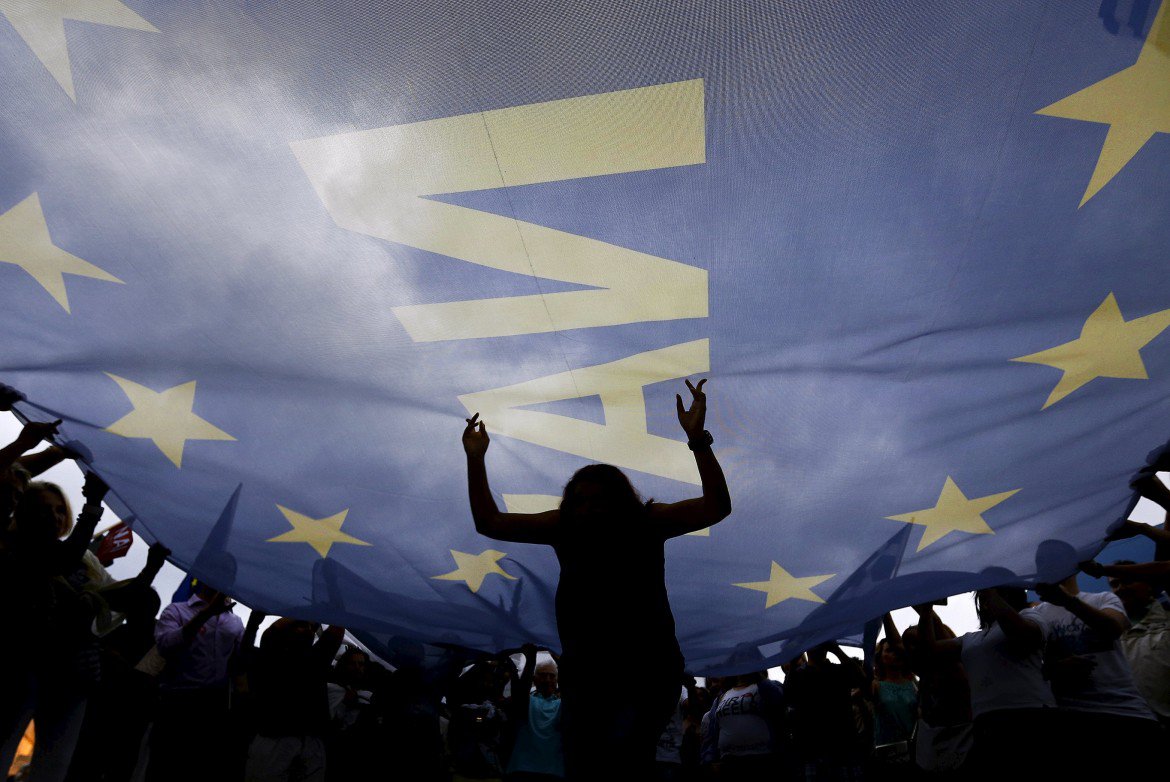Brexit
Nationalism is booming in Europe
If the leadership in Brussels and Berlin continue on as if nothing has happened, they may bring down the European Union.

Few thought it would end the way it did. But, on the other hand, the usual analytical tools appear to be irreparably useless. The stock markets and their expert operators are powerless. Everything keeps happening “for the first time,” and even the procedural pedantry of the huge European legislative body was already seeming to be a labyrinth impossible to unravel, if not an arena inside of which political and economic forces will be facing each other with threats, extortions, shrewdness and deception. The British have struck a political blow, and the economic-financial governance is already working to limit its damages and to optimize the profits.
A pathetic Nigel Farage, leader of the ultra-nationalist Ukip Party, proclaims the victory of Leave over multinational corporations and global powers. If it wasn’t impressive, hearing this surly character proclaiming the British “day of independence” would have certainly been cause for a loud laugh. Nonetheless, the fable according to which a departure from Europe would grant the conditions to restore the people’s sovereignty, in the actual state of political representation, continues to have a certain number of followers.
The United Kingdom (which was never as divided as it is now, after the referendum) enjoyed every possible privilege in Europe. Protected from Schengen’s requirements, out of the Eurozone, refunded most of its “European taxes” and exempted from fully guaranteeing welfare for E.U. citizens, it chose anyway to abandon this comfortable position, in spite of the somber predictions released during the campaign.
There was no rational, solid argument that could have been aligned in favor of Leave, and in spite of that, most British citizens (although a very narrow majority) have chosen to turn their backs against Europe.
The Brexit is, somehow, the opposite of the failed Grexit. Great Britain leaves Europe after having been blandished and favored. Greece decides to remain despite harsh impositions against it and after a tiresome battle in which it had the majority (and lost) against the Troika’s economic recipes. Was it a self-inflicted wound or was it fear? Maybe Tsipras could have risked more in his power struggle with Brussels (and, maybe, now a new season can be, and must be, opened). But somehow there was an awareness of the fact that isolationism and autarchy could have led to scary forms of nationalism and that Athens, although defeated, had set the stage for a different possibility in Europe, by allowing a breakthrough to be seen. But it’s right there, in that clash a year ago, that the European governance and the miserable social democracies who obeyed its choices wagging their tales, began circulating the germs working to break the E.U. apart.
The English people — we can call them that because of the vote’s geography — decided to abandon the European Union for the worst possible reasons, even worse than the same real effects resulting from the Brexit: a triumphant and arrogant national pride, an improbable “Us” in Europe’s most classist country. Surely Thatcher did not allow Europe to walk over her, but she didn’t hesitate to walk over the British working class. It’s not by chance that those applauding these reasons, and to threaten a rain of referendums, were the right-wing parties, from the Dutch, Danish, Finnish and all the way to Marine Le Pen’s National Front, as well as the insignificant Matteo Salvini.
It’s especially poor people from rich countries — convinced the less affluent members of the European Union are taking away the welfare which should be assured by their own homeland’s GDP — who are seduced by these sirens. The Greeks understood that the largest part of the cake was devoured by the oligarchy, with Berlin’s and Brussels’ complicity for as long as it had been possible. Now the European leaders are raising their voice but in reality are adopting a more prudent stance.
We’ll go ahead with 27, assures Jean-Claude Juncker, the European Commission chairman. But to go ahead as if nothing happened, with what’s happening around them, is a delusional choice, if not a suicidal one. It’s clear to everyone by now that the nationalists are fed up with European governance and by the financial interests inspiring it. At this point, the fact that the latter must be subject to a popular pressure contrary to the one that led London out of the union seems to me as being absolutely evident.
Originally published at http://ilmanifesto.info/le-vele-gonfie-dei-nazionalismi-in-europa/ on 2016-06-25
